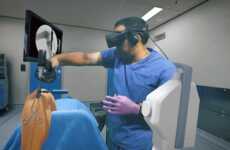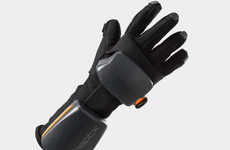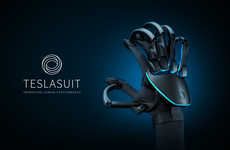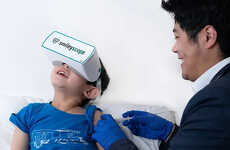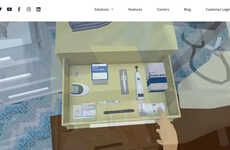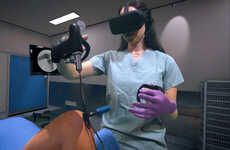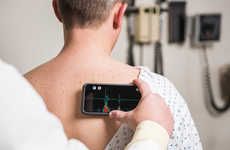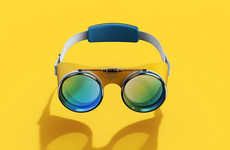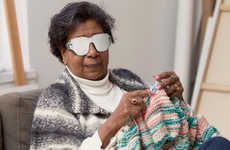
ImmersiveTouch Provides Doctors with Haptic Feedback
Ellen Smith — October 12, 2017 — Lifestyle
References: immersivetouch & forbes
ImmersiveTouch is a virtual reality training tool that provides doctors and surgeons with preoperative planning and experience.
The system integrates physical touch into the virtual reality model, offering haptic feedback that replicates the surgical touch and feel of a patient's anatomy. This tool ensures surgeons are entering each procedure with the confidence and practice that's required for success. Leonard Kranzler, a surgeon at the University of Chicago, explained that doctors are "learning while doing rather than learning while practicing." Through ImmersiveTouch, doctors are offered the tools for an enhanced performance that requires multi-sensory engagement.
In addition, ImmersiveTouch can convert medical scans into a 3D models so patients can visualize and better understand their condition prior to an operation. This educational aspect enables doctors to communicate with patients in a more comprehensive and accessible manner.
The system integrates physical touch into the virtual reality model, offering haptic feedback that replicates the surgical touch and feel of a patient's anatomy. This tool ensures surgeons are entering each procedure with the confidence and practice that's required for success. Leonard Kranzler, a surgeon at the University of Chicago, explained that doctors are "learning while doing rather than learning while practicing." Through ImmersiveTouch, doctors are offered the tools for an enhanced performance that requires multi-sensory engagement.
In addition, ImmersiveTouch can convert medical scans into a 3D models so patients can visualize and better understand their condition prior to an operation. This educational aspect enables doctors to communicate with patients in a more comprehensive and accessible manner.
Trend Themes
1. Haptic Surgical VR Training - Developing immersive virtual reality training with haptic feedback for a more hands-on surgical experience.
2. 3D Medical Model Visualization - Creating interactive 3D models of medical scans to enhance patient understanding and informed consent.
3. Multi-sensory Medical Education - Exploring ways to engage multiple senses in medical education for a more comprehensive learning experience.
Industry Implications
1. Healthcare - Implementing haptic VR training and 3D medical visualization technology to enhance surgical procedures and patient communication.
2. Medical Education - Developing innovative multi-sensory medical education tools, such as haptic VR models, to improve student learning and retention.
3. Virtual Reality - Advancing the use of haptic feedback in virtual reality for medical training and education, as well as other applications such as gaming and entertainment.
0.5
Score
Popularity
Activity
Freshness


